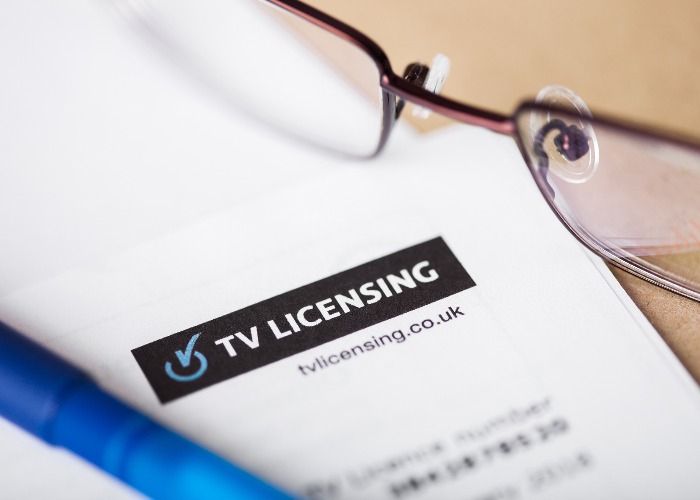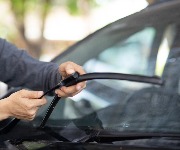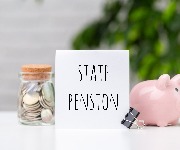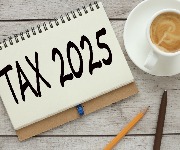Opinion: the TV licence shouldn’t be free for all over 75s

The BBC is set to scrap free TV licences for many over 75s next year. While controversial, it may also be the right decision – provided certain steps are taken.
The BBC has announced its controversial decision to means test TV licences for over 75s instead of giving it away for free.
From 1 June 2020, only households where someone over the age of 75 receives Pension Credit will get a TV licence funded by the BBC.
A change in policy has been talked about for years, yet there is a lot of anger from the public and politicians alike, but I think means testing TV licences is a good thing – on several conditions.
The Government must protect the elderly from being unfairly criminalised with additional protective measures, as well as ensure UK courts don’t get swamped with unnecessary cases involving unpaid licence fees.
New TV Licensing email scam claims ‘your current licence expires today’
The huge cost of free TV licences
The cost of providing free TV licences to all over 75s is significant.
According to the BBC, these costs would climb to £745 million annually by 2021/2022 before reaching over £1 billion by the end of the next decade.
Unfortunately, there are no easy options for dealing with these rising costs, and I think this is probably the fairest outcome.
Without means testing the TV licence for over 75s, the BBC claims it may have been forced to hike prices for everyone, raise the age threshold from 75 to 80, cut spending on services or scrap the free licence outright.
Hiking prices would be particularly unfair on younger people, who are more likely to watch shows on streaming services like Netflix, with traditional TV shows more likely to be viewed by older people.
While the BBC’s decision is unpopular, it says it does prevent the “unprecedented damaging closures” of major services.
Services that were under threat if the BBC copied the Government’s scheme potentially included BBC Two, BBC Four, Radio 5live, several local radio stations, as well as the BBC News and BBC Scotland channels.

Why pensioners need extra protection
According to TV Licensing, 243,700 people were caught watching a TV without a licence in 2017-2018 and the evasion rate was surprisingly low at between 6.5% and 7.5%.
My primary concern about the change in policy by the BBC is that it may catch out unsuspecting or vulnerable pensioners that are used to getting a TV licence for free – and may be dragged to court.
Offenders may face a penalty of up to £1,000 (up to £2,000 in Guernsey), on top of legal costs and possibly compensation costs.
People without a TV licence, particularly older users, should not have to deal with the distress of going to court over a £154.50 annual fee.
Additional safeguards should be put into place by the Government to ensure vulnerable people are not unfairly criminalised.
There should be a huge campaign to promote Pension Credit, including how to claim it to ensure pensioners who cannot afford a TV licence, don’t pay.
If a Government wanted a masterful plan to improve take up of Pension Credit, restricting free TV licences to over-75s on the benefit would be an excellent way to do so.#UnintendedConsequences
— Josephine Cumbo (@JosephineCumbo) June 11, 2019
It's perhaps a separate debate to be had, but evading the TV licence fee should be dealt with differently, as sending people to the courts puts more pressure on an already overburdened criminal justice system.
TV Licensing already considers whether a customer is deemed vulnerable by asking about their personal circumstances and trying to spot ‘hidden disabilities’.
But it needs to go a step further with the new TV licence rules by identifying pensioners at risk of unintentionally falling foul of the rules, and not penalise them.
Without additional safeguards, pensioners could end up being criminalised, forking out unfair fines and unnecessarily going to court.
Is the decision to scrap free licences for all over 75s a good or bad one? Share your thoughts in the comments section below and vote in our polls above.
Most Recent
Comments
-
I find the "free" licence for over 75s a very worthwhile concession but it is not well thought out. It should not be automatically issued to anyone over 75 but only where there is no one under 75 residing. It should be incumbent for such a pensioner reaching the age of 75 to request the issue of a free licence. The application could well be supported by a copy of the property's single occupancy Council Tax Bill. Further verifiable through the Electoral Roll to list occupants whose age could easily be supported by driving licence, passport, etc. The result would meet the original intention of relieving an over 75 pensioner of a large but unjustified payment and would give the BBC a licence fee wherever there are other occupants.
REPORT This comment has been reported. -
The general consensus seems to get it right. The BBC is biased, the structure is partially ossified and many of it's 'stars' and staff are overpaid for what they do. There is no good reason for the service to be compulsory. It could and should be 'opt- in' like all of the other TV channels. And if the current crop of folk with eye watering salaries decide dto leave and go elsewhere 'because they're worth it', it would give the many up and coming younger wannabes a better chance than waiting for 'dead men's shoes!
REPORT This comment has been reported. -
It is rather strange that people talk about financial responsibility, running a proper business etc etc when it is so obvious that there are the likes of "Sir" Philip Green and "Sir" Robert Maxwell and "Sir" Alan Sugar around, taking everyone to the cleaners. The tip of the iceberg. How do these people get bailed out when their enterprises hit the rails? Why, with "government" money of course - - for "government" read "your tax pound". The BBC may have many faults - especially failing in its charter to inform, educate and act in the public interest. However, without the BBC, we rely on manipulative commercial forces. Look how we have been manipulated into accepting AI and robotics. Our children will see nothing wrong with their developing techno-autism. Most parents do not see it coming either. So, really, in the great scheme of things perhaps the BBC should exit stage left right now.
REPORT This comment has been reported.
Do you want to comment on this article? You need to be signed in for this feature









26 July 2020